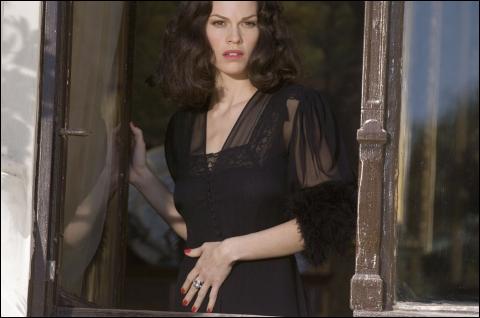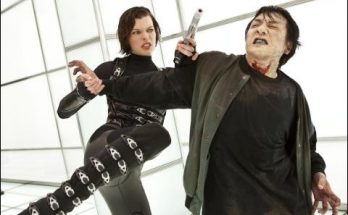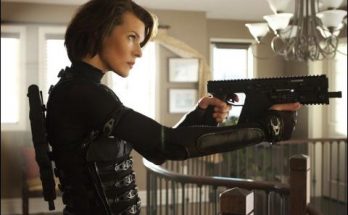Period-appropriate music was just as vital to De Palma as location or costume choices. From the trumpets that bump in the first time Bucky and Madeleine make love to the slow jazz-band sequence when Bucky reveals a difficult truth to Kay, the score was the evocative creation of composer and jazz trumpet player (and a student of noir films) Mark Isham.
“The key to Mark Isham is that he’s a great trumpet player,” compliments the director. “I always heard a mournful trumpet in this blues type of movie. It was like the voice of Bucky.” He adds, “You know you have a really great composer when he can replace the temp score and you’ve forgotten it completely.”
To underscore the Dahlia’s hideaway, Laverne’s, where she would cage drinks “off the sisters,” the team would turn to unique country and pop-artist belter k.d. lang, whom producer Linson convinced to sing “Love for Sale” for the soundtrack. “We created this kind of Busby Berkeley number,” shares De Palma. “We spent a whole night shooting, and it was the last thing shot in Sofia.”
And what would a sexy, underground ’40s nightclub be without leggy showgirls? Mia Frye, the same choreographer De Palma worked with on Femme Fatale, brought in French, Bulgarian and English dancers to bring Laverne’s to life. “Those girls danced ’til dawn,” laughs the director.
August 30, 2006, marked Brian De Palma’s fifth premiere at the Venice Film Festival. The Black Dahlia opened the annual event in the Sal Grande of Venice’s Palazzo del Cinema. And the inspiration for the story he tells finally found herself on the silver screen, almost 60 years after her murder.
Elizabeth Short’s journey to the movies was a bittersweet one. All her life, she dreamed of being an actress who touched others. She had no idea just how much of a nightmare that would become. A beautiful Hollywood wannabe at the end of the Second Great World War, Betty’s life was snuffed out prematurely. Yet, the impact of her story will be felt for centuries.
The director concludes, “How does that beautiful girl you’ve seen pin-ups of become this? Who did this to her and why? The Black Dahlia has lived on for decades. It’s one of those mysteries that will go on forever.”
We close this chapter of the Black Dahlia’s saga with Ellroy’s summations on Betty and his own mother, Jean: “They rest dead as L.A. opportunists, and I have ceaselessly worked to recast them as L.A. immortals.” Cherchez la femme, Bucky. Cherchez la femme.
Hits: 38



